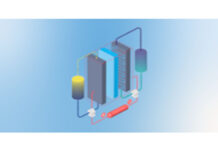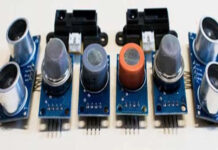Digitization, automation, and launching of new business models have brought a paradigm shift in plethora of industries. The automotive industry is no exception to this. Accelerated development witnessed in emerging economies, onset of new technologies, and changing customer trends are likely to harness the growth of the automotive market. These factors will also define scope of demand for smart windows in the automotive sector. Immense use of energy-efficient window coatings in smart windows of automotive for blocking infrared radiations coming from the sun in warm climatic conditions will boost the adoption of smart windows in the automotive sector. The industry 4.0 revolution is predicted to bring a drastic transformation in the automotive industry. This will increase preference for automotive smart windows among automakers, original equipment manufacturers (OEMs), and customers in the coming years. Launching of smart city projects has altered consumer mobility behavior and their preferences for vehicle type. This has resulted in immense use of smart windows in automotive. With electric vehicles becoming a catch phrase of the automotive industry, the automotive smart windows market growth is predicted to gain momentum in years ahead. According to Allied Market Research Report, the global automotive smart windows market is set to accumulate earnings of nearly $6.94 billion by 2030.
Investments in new autonomous technologies, electrification, shared mobility, and connectivity have proved to be beneficial for automotive OEMs and suppliers. Moreover, requirement of key resources, strong infrastructure facility, and need for funding projects to develop vehicle autonomous systems have compelled players in the automotive industry to enter into partnerships and joint ventures with other players from the same or other industry. Furthermore, market players are entering into agreements and partnerships for expanding their business. The industry players are also trying to allocate huge funds for expanding production capacities of their manufacturing units, thereby deriving huge revenue from sales of their products along with fulfilling growing product demand. Moreover, they are acquiring new firms to add to their product and technology portfolio. These strategies will help industry players generate new revenue streams along with facilitating product innovations. Let us discuss about the strategies adopted by market players to augment their business and ongoing trends witnessed in the automotive smart windows market.
Market players are entering strategic collaborations for expanding their product portfolio and such moves will boost the market expansion. In June 2022, 5E Advanced Materials, Inc., a vertically integrated leader in BORON & advanced materials across globe, signed a letter of intent with Corning Incorporated, a U.S. based firm specialized in ceramics, specialty chemicals, and advanced optics, for supply of boron specialty materials to latter. As per the agreement, both 5E and Corning will collaborate with an aim to develop boron advanced materials that will be used in producing Corning’s products. The strategic move will help Corning Inc. add beneficial features to its product. Moreover, such initiatives will provide impetus to growth of the automotive smart windows market in forthcoming years.
Industry players are implementing acquisition strategies to increase production capacities of their manufacturing units and strengthen their existing product portfolio. On February 7, 2022, PPG Industries, a U.S. based Fortune 500 Firm & global supplier of paints & coatings and specialty chemicals, signed a deal of acquisition with Arsonsisi, an Italian supplier of specialty powder coatings. As per the deal, PPG industries will acquire powder coating manufacturing business of Arsonsisi and this acquisition will help PPG industries in increasing its sustainable coatings production capacity. This will also include surge in manufacturing of metabolic bonding powder. Earlier, in September 2021, PPG acquired Cetelon Lackfabrik GmbH, a key coating producer for light truck wheel & vehicle applications. Reportedly, the acquisition is predicted to assist PPG in reinforcing its current coatings portfolio. These business transactions are projected to play a pivotal role in influencing profit margin of the automotive smart windows market.
A trend of acquiring other firms for enhancing product & technology portfolio has been consistently witnessed in the automotive smart windows market. In September 2021, Gentex Corporation, a long-time electro optical goods supplier for the global automotive, fire protection, and aviation sectors, acquired Guardian Optical Technologies, an Israel-based startup firm in sensor technology market. The acquisition was made with a perspective of monitoring driver alertness and tracking passenger behavior in vehicle with help of sensor technology. The strategic move has bolstered Gentex’s in-cabin monitoring expertise. The business strategy of acquisition adopted by players such as Gentex Corporation will open new facades of growth for the automotive smart windows market in years to come.
Key business strategies such as new product launches adopted by market players is predicted to favorably impact the automotive smart windows market growth. In May 2022, AGC, Inc., a global glass manufacturing firm based in Japan, developed light-control panoramic roof with low e-coating. Moreover, the product has been adopted for LEXUS RZ, a BEV prototype to be introduced by Toyota Motor Corporation in second half of 2022. Reportedly, low-e coating technology developed by AGC for automotive glass helps panoramic roof in providing open cabin environment as well as maintaining comfortable cabin temperature. This is due to ability of low-e coating in achieving high solar control & enhanced heat insulation performance for automotive. This results in high reduction of heat in summer and cold in winter. In addition, shade-less configuration of low-e coating adds to weight reduction of automotive and its head clearance. Such initiatives will boost demand for smart windows in automotive and increase earnings of market players.















